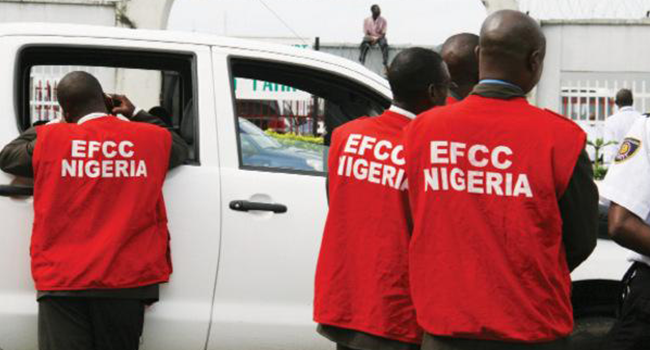Operatives of the Ilorin Zonal Command of the Economic and Financial Crimes Commission (EFCC) have arrested five persons for possession and conveyance of three truckloads of assorted solid minerals mined without licence.
Disclosing this in a statement on Tuesday, EFCC spokesman, Dele Oyewale, said that the suspects include Dauda Suleiman, Quadri Oladimeji, Abubakar Alhassan, Anas Sanusi, and Auwal Garba.
He said the suspects are truck drivers except for Quadri Oladimeji and Auwal Garba, who are truck boys
“Their arrest, which was effected along Maraba road, Ilorin Kwara state and Ogbomosho, Oyo state between March 21 – 22, 2024, followed credible intelligence and days of surveillance,” the statement read.
“The suspects were arrested while conveying solid minerals suspected to be marble stone, white powder, lithium, and lepidolite to Shagamu and Alakija in Ogun and Lagos State for commercial purposes without licence. They claim to be hired.
“Details of the trucks recovered from the suspects showed that Dauda, Abubakar, and Anas were each carrying a truck with registration numbers JJJ 206 YG, Lagos; T24413 LA, Lagos and KNT 635 XP, Niger, respectively.”
This is not the first arrest to be made by the anti-graft agency on those engaged in illegal mining in the country.
On February 5, the EFCC arrested 41 persons over suspected illegal mining activities in Ilorin and impounded 12 truckloads of assorted minerals mined without license. The latest arrest brings to 46 the number of persons arrested, and 15 vehicles ceased in the last month over similar offences. The statement said that the suspects would be arraigned in court after the conclusion of investigations. By Abdulhakeem Garba, Channels Television






